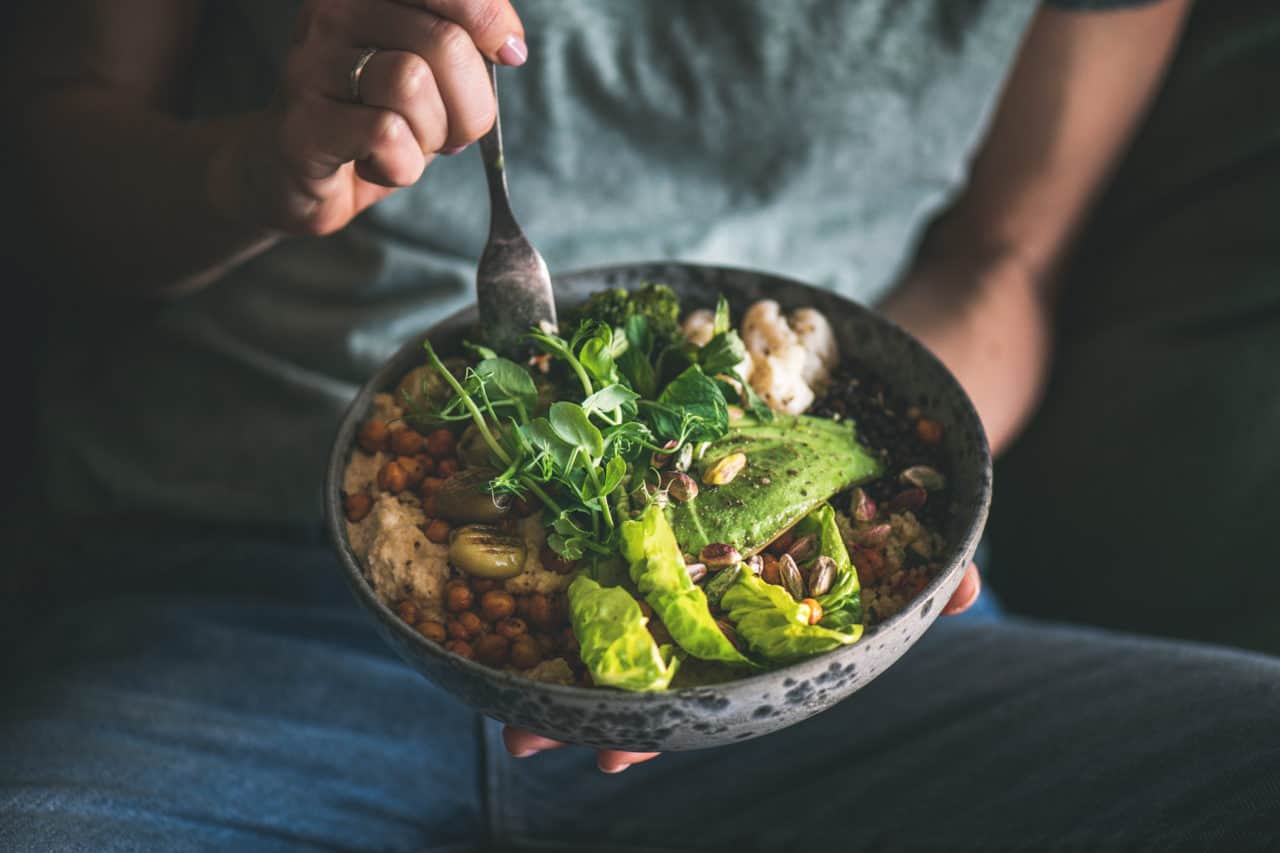
Vegan sports nutrition: How to achieve maximum performance on a plant-based diet
What do tennis player Venus Williams, ultra marathon runner Scott Jurek, and bodybuilder Torre Washington have in common? All three professional athletes rely on vegan sports nutrition for their training – and they are certainly not the only ones. But does performance stay the same, or can it even be increased? Can a vegan diet deliver all important nutrients to provide maximum athletic performance?
In this article, we will show you the advantages and disadvantages of vegan sports nutrition, give you tips to meet your nutritional needs, and introduce leading research in the field of plant-based nutrition for sports performance. In addition, we spoke to Carla from KADER 1, a vegan power athlete, to gather a few tips for you.
Let’s get one thing out of the way: Each person has individual needs and goals; therefore, this is not a general nutritional recommendation. It is best to get advice from a nutritional consultant to find the right diet for you.
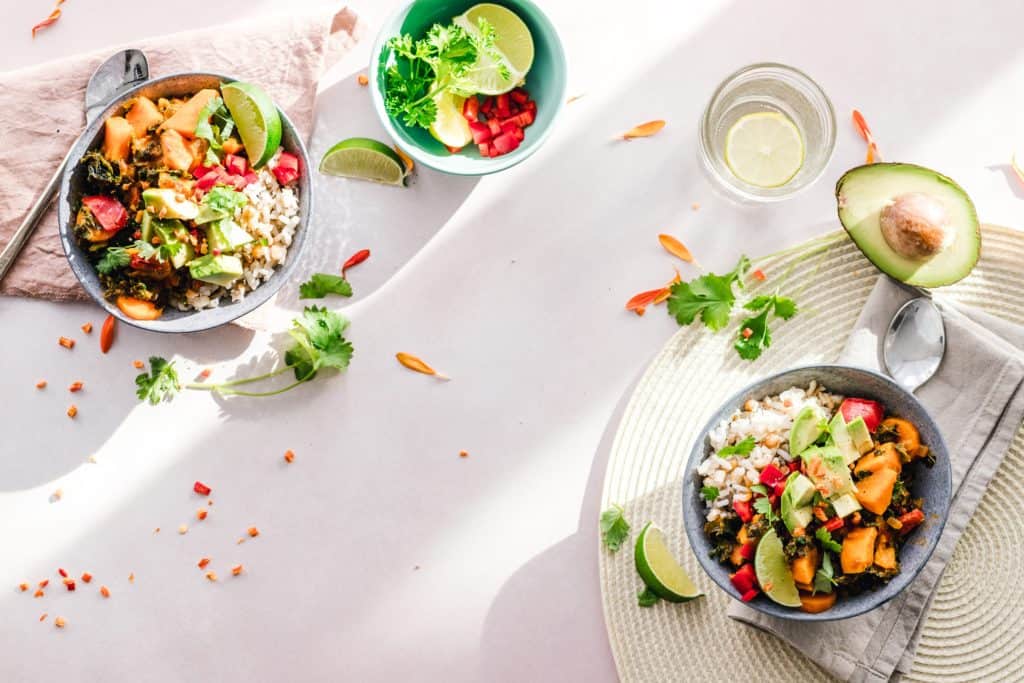
Can I achieve maximum performance with vegan fitness nutrition?
Yes! With careful planning, balanced nutrition, and by keeping an eye on your nutrient intake, you can engage in regular training or even participate in performance sports.
What is veganism?
Vegans are a bit stricter than vegetarians, and completely avoid animal products such as meat, fish, eggs, and dairy products. Their nutrition is based on plant-based food. Vegan sports nutrition can provide the same nutrients as a non-vegan diet. However, it is important to plan your diet to ensure intake of all the most important nutrients such as carbohydrates, proteins, iron, zinc, vitamin B12, and others for performance and muscle building.
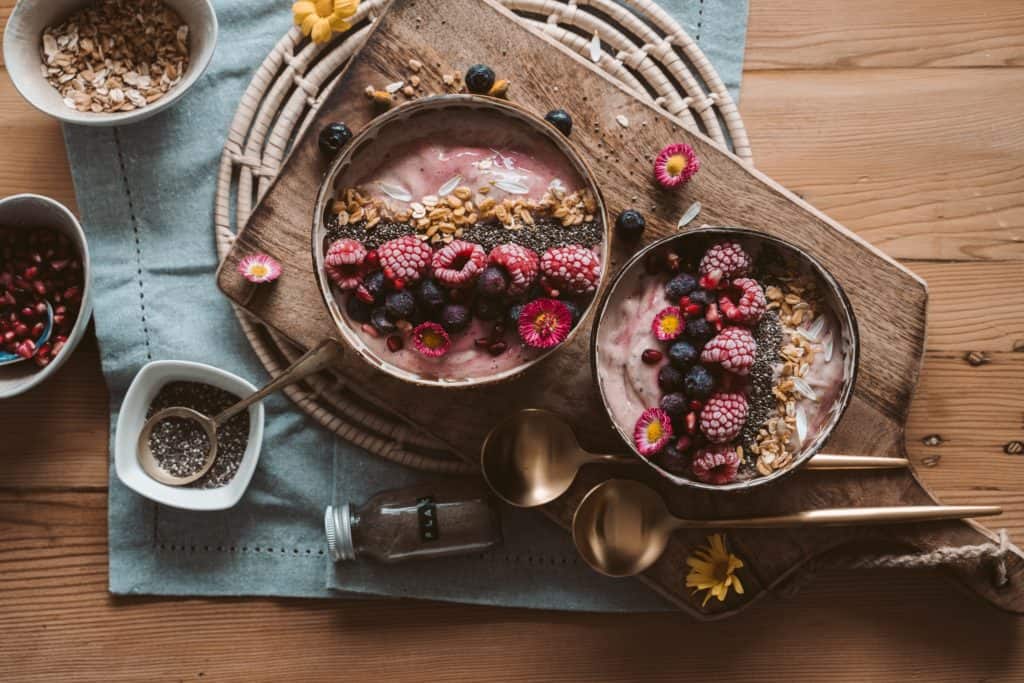
Why do athletes decide to eat a vegan diet?
As described above, the demand for vegan fitness nutrition is constantly growing. There are various reasons for this. While you are probably aware of the ethical and ecological reasons, there are additional motivations for athletes to decide on vegan sports nutrition. Two important reasons are health and performance.
Health reasons: Many studies have determined that a vegan diet can reduce the risk of certain diseases. These include cardiovascular diseases, diabetes, and certain cancers.
Performance-based reasons: According to various studies, sports performance can be improved through a vegan diet.
We will look at the advantages and disadvantages more closely later. But here, too, we want to stress again: Every person reacts differently to specific nutritional methods. Therefore, it is important to get professional advice.
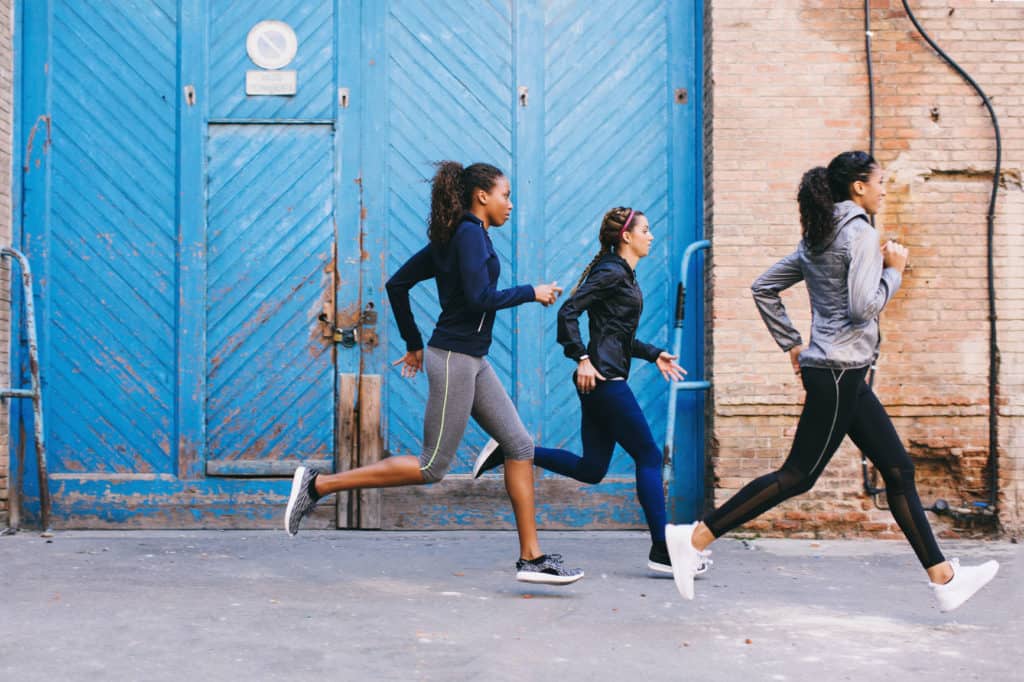
The most important nutrients for vegan sports nutrition
A balanced vegan diet provides all the nutrients your body needs – even for top athletes in performance sports. In general, no matter whether we are talking about endurance sports or power sports, a varied and balanced diet that provides sufficient energy, proteins, and essential nutrients to support your workout and recovery is important. However, which nutrients you should pay attention to most can vary depending on the type of workout and type of sport. In this article, we will summarize the most important macro- and micro-nutrients for you. It is only meant to serve as a rough overview and a basis for orientation. Because before you start, first ask yourself what your goals are and ideally discuss this with a nutritional consultant.
Macro-nutrients:
“If you want to get the most out of athletics, it makes sense to take a look at your diet. As with any other diet, it makes sense to pay attention to the proportion of carbohydrates, fat, and protein sources,” explains Carla from KADER 1. Therefore, we would like to provide you with a short overview.

1. Carbohydrates
“Carbohydrates are particularly important in endurance sports,” says Carla. Carbohydrates are the main source of fuel for endurance athletes, and should therefore make up a large proportion of their diet. Carbohydrates also help to restore the muscle and liver glycogen between the individual workout units. High-quality, nutrient-rich carbohydrates such as potatoes, noodles, bread, vegetables, and fruits provide concentrated amounts of simple (mono and disaccharides, maltodextrins) and complex (starch and fiber) carbohydrates as well as a number of micro-nutrients such as vitamins, minerals, and other nutrient compounds. “With carbohydrates, you should rely on the most unprocessed complex carbohydrates possible. It makes sense to eat more complex carbohydrate sources a little while before athletic activity. You should eat simple carbohydrates such as a banana or dates right before, during and after your workout, since these give you energy quickly, and you can therefore maintain your performance,” Carla adds.

Plant-based sources of carbohydrates and food:
- Starchy vegetables such as potatoes or sweet potatoes
- Legumes and pulses such as lentils, beans, chickpeas, etc.
- Cereals/whole grain products, such as oatmeal, buckwheat, spelt, etc.
- Pseudo-grains such as amaranth, quinoa, etc.
- Fruit
2. Protein, protein, protein!
Protein or albumen is the first thing you probably think about when it comes to strength training. Carla also confirms this: “If you want to achieve the maximum from yourself in power sports, you should take a closer look at proteins, because they are significantly responsible for muscle retention and building. If you want to build and retain your muscle mass, it helps to eat as many different protein sources as possible throughout the day. So instead of eating tofu with vegetables all week, it is good to vary between tofu, seitan, lentils, and a few other vegan sources of protein.” This also applies to non-vegan athletes who want to vary from low-fat curd cheese and get their protein or albumen a different way from time to time. Vegan endurance athletes may need a little more albumen than non-vegan athletes to help repair and rebuild muscle mass after a workout. The protein sources also cover essential amino acids.
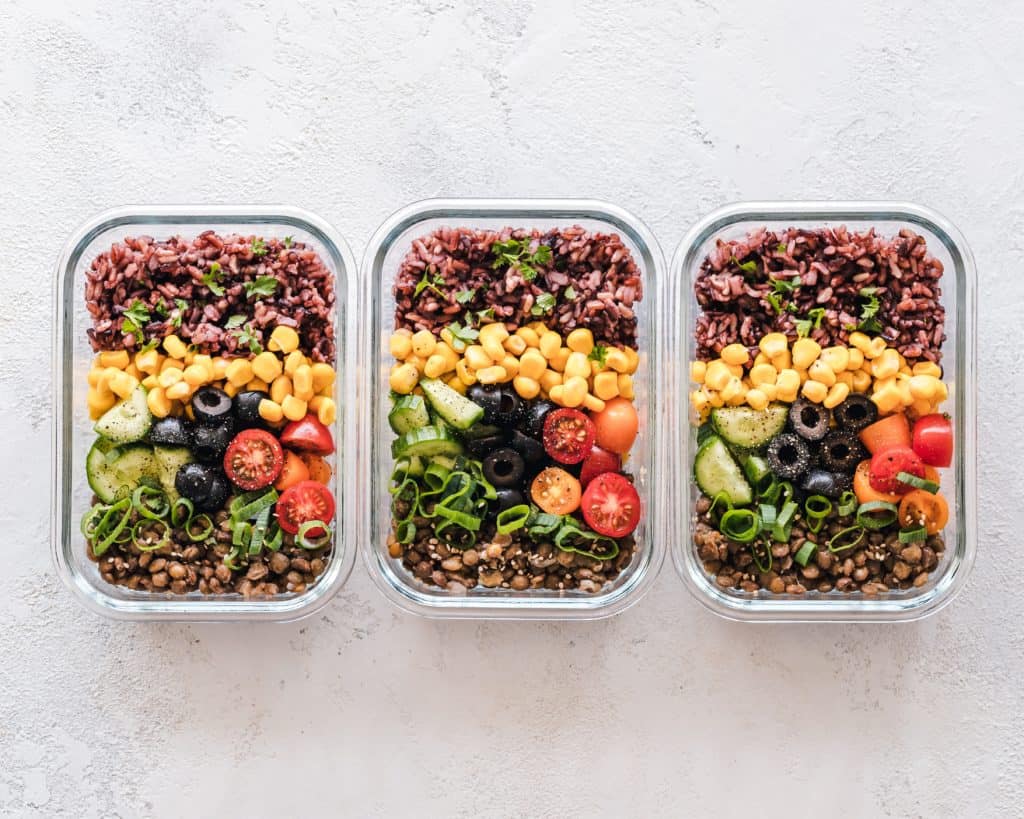
Plant-based sources of protein / sources of albumen and products:
- Legumes and pulses such as lentils, beans, chickpeas, etc.
- Nuts, seeds, and kernels
- Tofu, seitan, and tempeh
- Cereals
- Pseudo-grains such as amaranth and quinoa
- Protein shakes
3. Fats
Fatty acids such as omega-3 are important for regulating your inflammation and your heart’s health. As a vegan, you generally consume less fat than people who eat animal products. This reduces the likelihood of heart disease, type 2 diabetes, certain types of cancer, and high blood pressure. Carla also explains that vegans have an advantage when it comes to the macro-nutrient fat. This is because many vegan fat sources contain healthy fat – the unsaturated fatty acids.
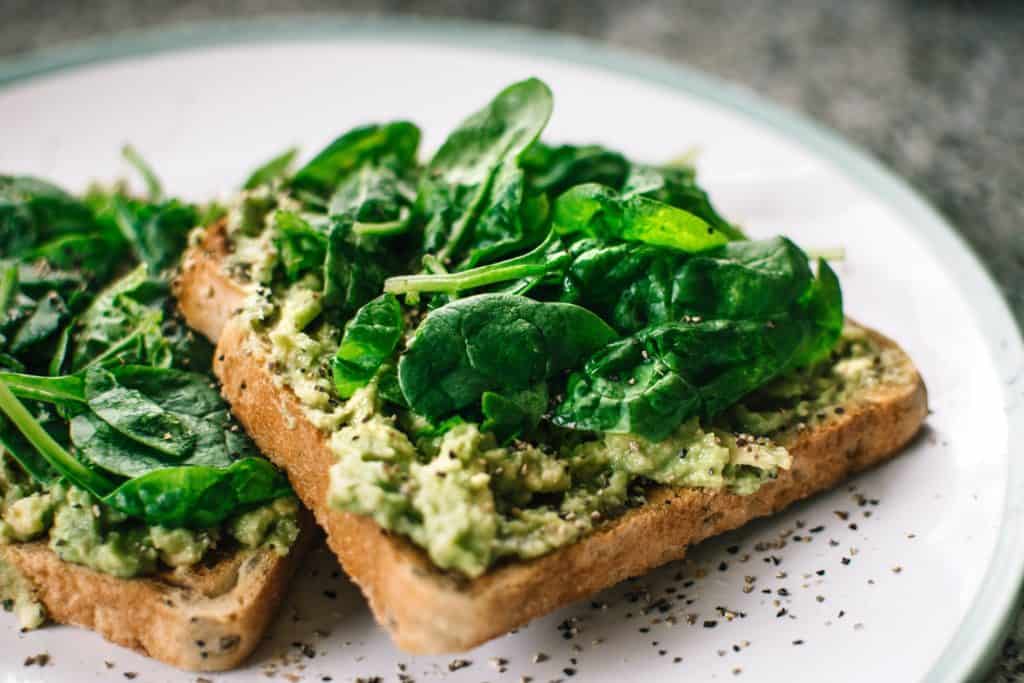
Plant-based sources of fat include:
- Nuts (for example, walnuts) and nut butters
- Seeds (such as linseed and chia seeds) and kernels
- Avocados
Don’t forget your liquid intake! It is important to drink enough water to compensate for the loss of liquid during athletic activity.

Micro-nutrients:
There are also some micro-nutrients that are important for vegan sports nutrition. Here is a brief overview:
1. Vitamin B12
“If your diet is strictly vegan, it is beneficial to supplement vitamin B12,” Carla explains. Vitamin B12 is important for blood formation and for the nervous system. But it is not only important to supplement this it if you eat strictly vegan; you should also take it as part of a mixed diet, since many people also have a vitamin B12 deficiency.

Plant-based vitamin B12 sources and products:
- Vegan supplements
- Food that has had vitamin B12 added to it, such as vegan milk
2. Iron
There can be a risk of iron deficiency due to the increased iron requirements in endurance and strength sports training, particularly for women. Therefore, it is important that you consume enough of this too. To better absorb the iron, we recommend taking vitamin C at the same time, for example, with freshly squeezed orange juice.
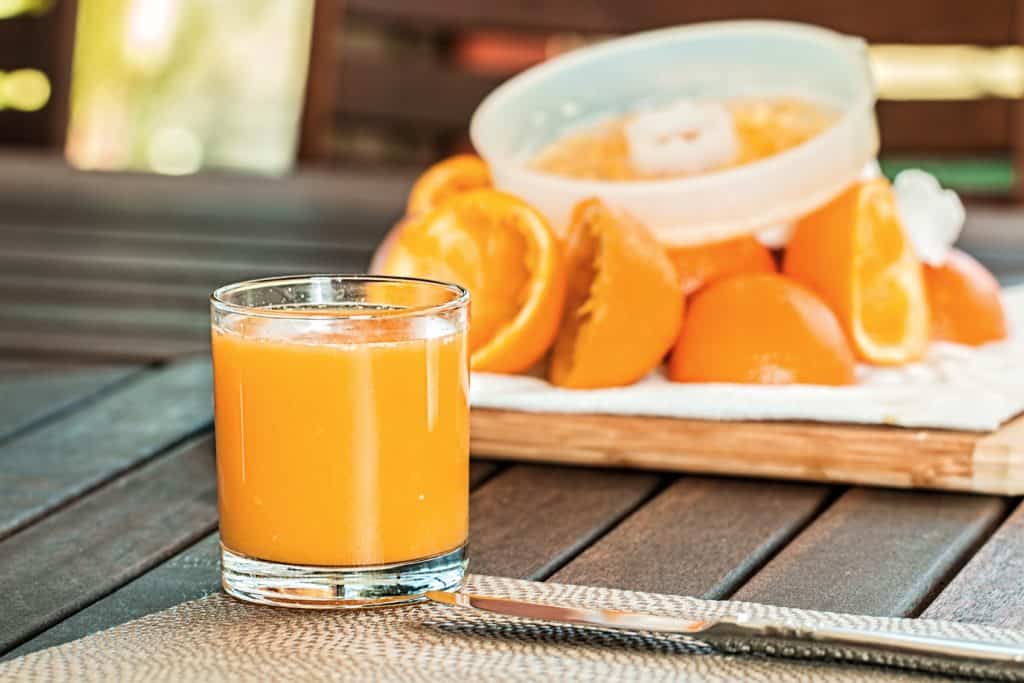
Plant-based sources of iron and food:
- Legumes and pulses such as lentils, beans, etc.
- Seeds such as pumpkin seeds, sesame, hemp seeds, and linseed
- Nuts, such as pistachios, almonds, and hazelnuts
- Cereals such as oatmeal
- Pseudo-grains such as amaranth, quinoa, and millet
- Dried fruits
- Whole grain products
- Tofu, tempeh
3. Calcium
Calcium is important for bone and dental health and is an important mineral for your body. It plays an important role in blood clotting. Since vitamin D promotes uptake in the blood, we also recommend supplementing vitamin D, especially during winter. In general, dark green leafy vegetables are particularly rich in calcium. You can also consume antioxidants directly from them. Caffeine, alcohol, and phosphates (for example, in microwave dinners) inhibit uptake. Therefore, try to avoid them.
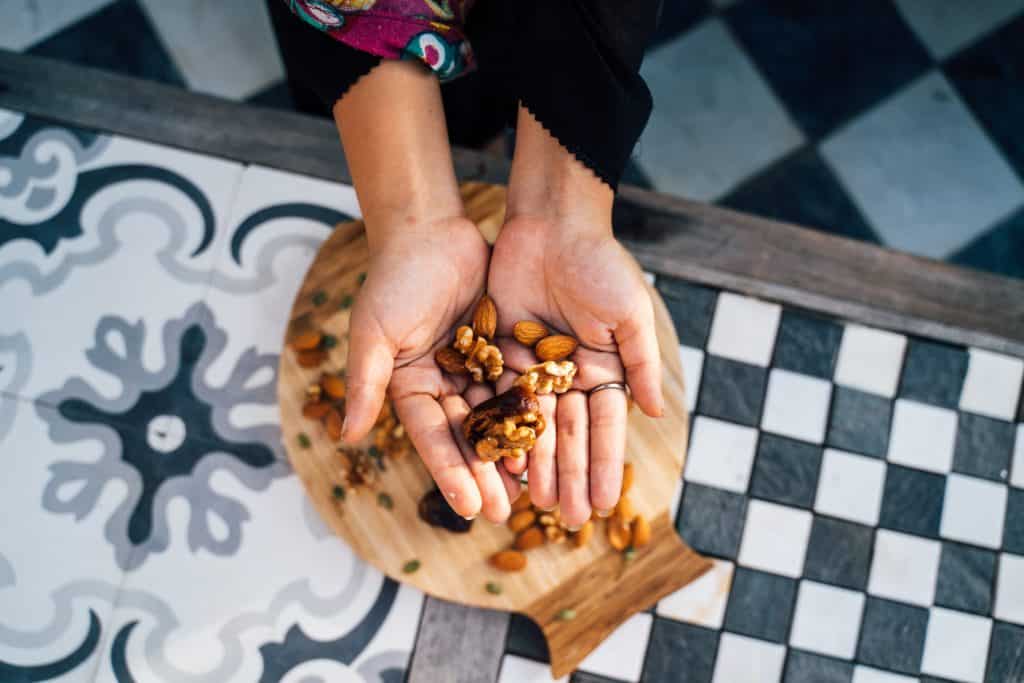
Plant-based sources of calcium and food:
- Algae
- Sesame and poppy seeds
- Nuts (almonds, hazelnuts, Brazil nuts)
- Green leafy vegetables (arugula, spinach, fennel, green cabbage, wild herbs, etc.)
- Green cabbage
- Dried figs
- Tofu
- Arugula
- Mineral water
“If you have just switched to vegan sports nutrition, monitor your energy needs as much as possible at the beginning, because plant-based food has a lower calorie density”.
One final, important point: If you eat vegan and do sports, it is important to ingest enough calories to meet your body’s energy needs. A balanced vegan diet that includes the nutrients mentioned above can provide these calories. However, it is worth consulting a nutritional consultant to achieve your desired goals with your diet. In addition, Carla recommends that you have a blood panel done every year and that you adapt your diet or supplement nutrients for a time accordingly. Incidentally, this doesn’t apply just to vegan sports nutrition.
Here is a little insight into Carla’s diet:
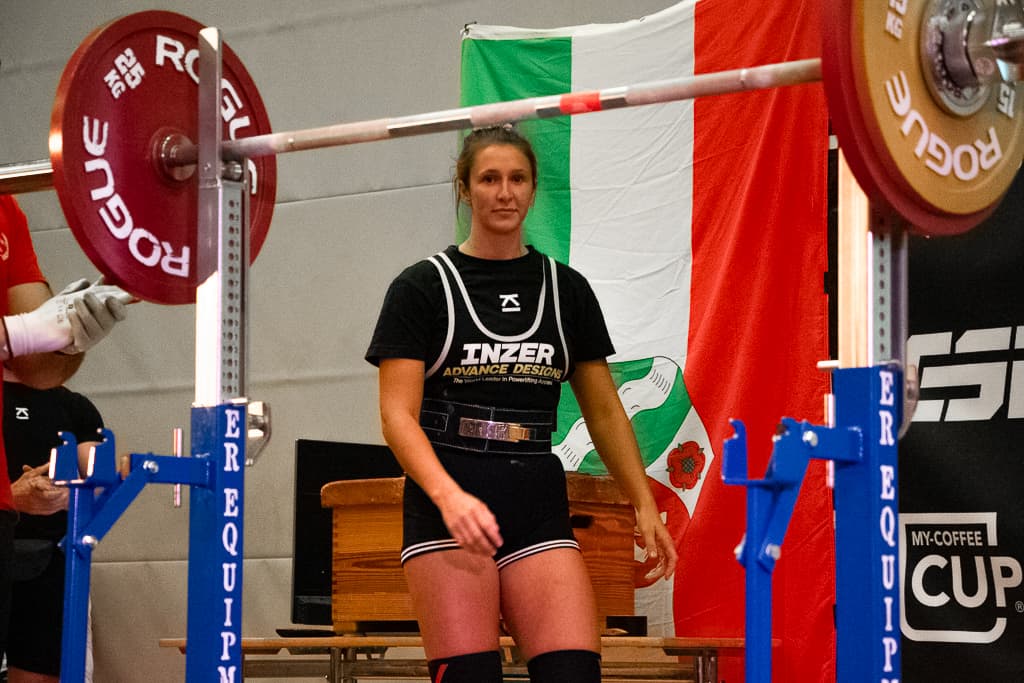
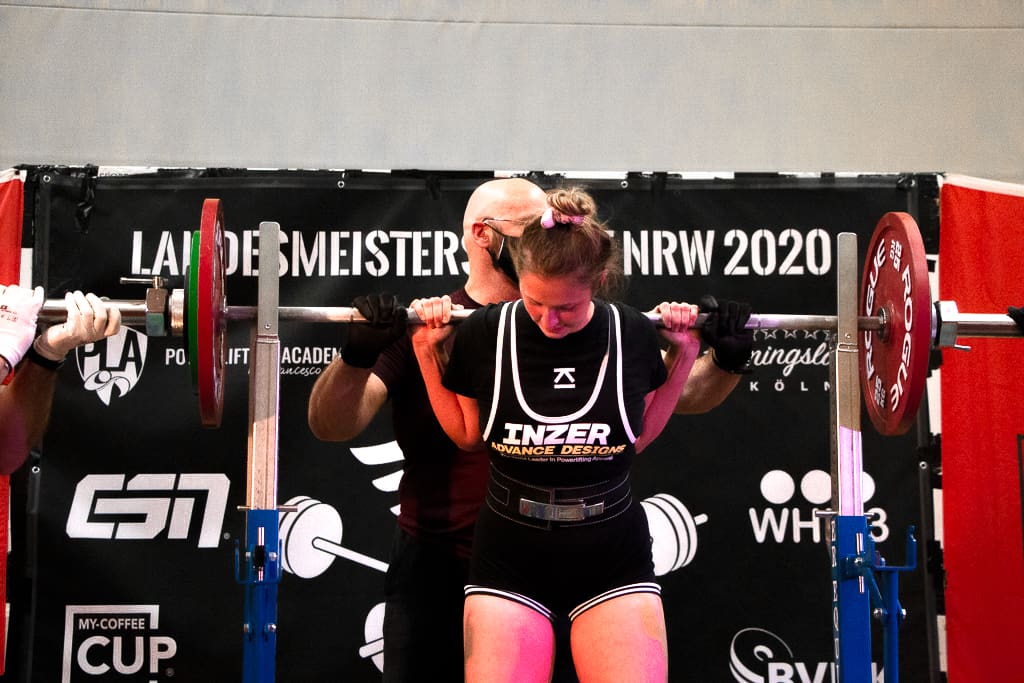
“I am not personally a fan of a strict dietary plan. However, there are a few basics that cannot be forgotten in my diet as a strength athlete.” These include (among other things):
- A good vegan protein powder that also ideally tastes good
- Lentils
- Seitan
- Smoked tofu
- Nuts
- Oatmeal/rice/pasta/potatoes
- A lot of vegetables
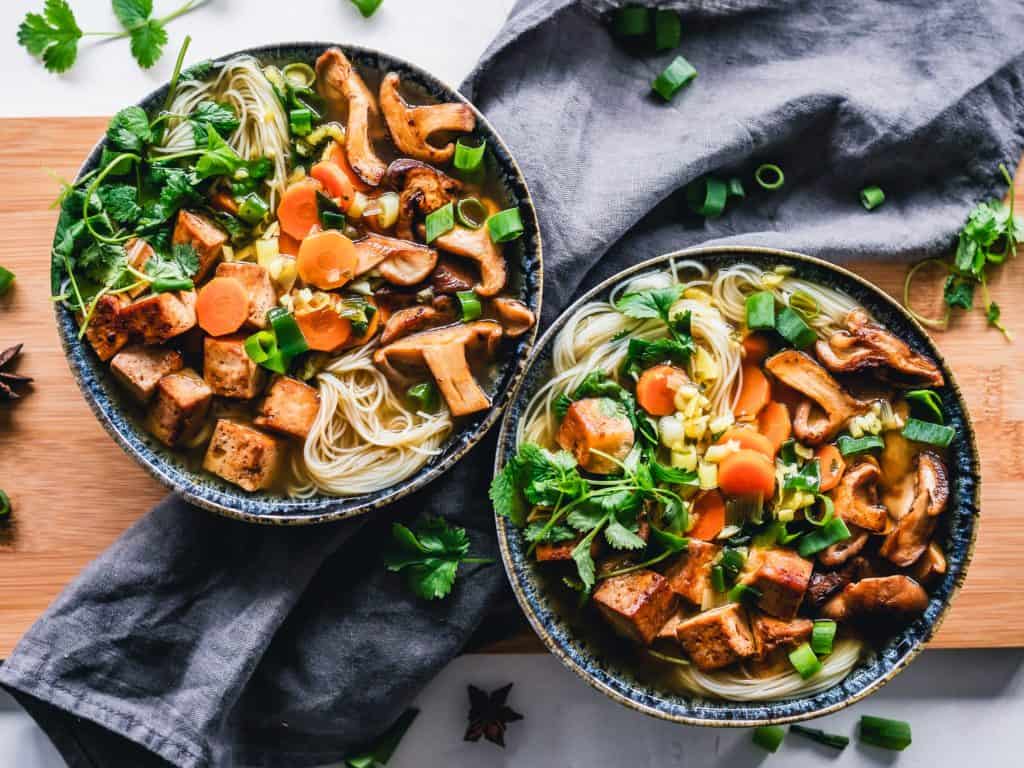
Potential benefits of vegan sports nutrition
“This question doesn’t have a blanket answer. There are people who are healthier on a mixed diet than vegans, and vice versa. You could also eat pure vegan fast food. But there is no question that this cannot be healthy over the long term. In my experience, athletes who eat vegan are simply more interested in the topic of diet than athletes who prefer a mixed diet. In strength sports, this could often be due to the need to perform a few ‘tricks’ to meet your protein needs,” says Carla. So, if we are talking about the benefits of vegan sports nutrition, we are mainly referring to a plant-based diet. Apart from the ethical and ecological reasons, vegan sports nutrition has several potential advantages:
Weight loss: Plant-based foods are usually lower in calories and fat than animal-based products. This allows you to maintain or achieve a healthy weight and still maintain high performance.
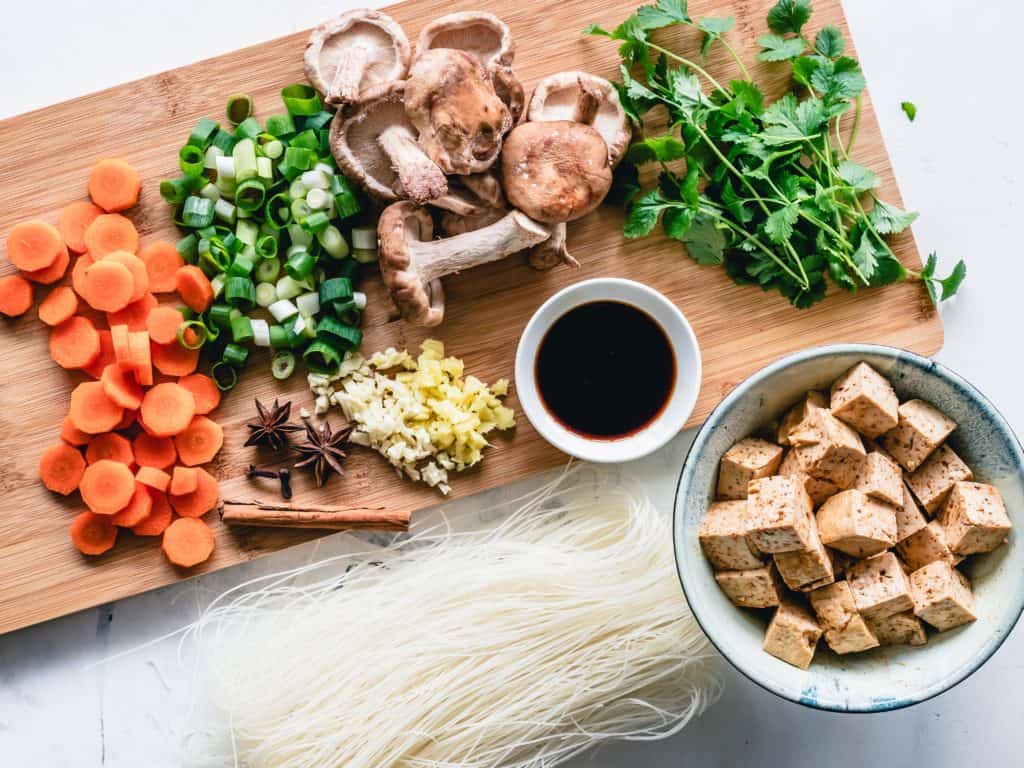
Reduction of health risks: Numerous studies have shown that a vegan diet can reduce various risk factors. These include high cholesterol, high blood lipids, diabetes, high blood pressure, being overweight, and cardiovascular diseases. The latter is particularly important for endurance athletes, because in one study, more than 40 percent of endurance athletes were determined to have deposits in their coronary blood vessels.
Improved endurance: In his book “How Not to Die”, doctor, trophologist, and expert in vegan nutrition Dr. Michael Greger quotes a study in which endurance athletes that eat vegan have significantly lower levels of oxidative stress than their omnivore competitors, which indicates that a vegan diet can improve endurance and recovery. Another study of young women examined the differences between vegans and non-vegans in sports. The result was that the vegans showed a larger maximum oxygen volume (they could utilize more oxygen per minute during athletic exertion) and a higher sub-maximum speed (when you run below your maximum speed).

Accelerated regeneration process: According to various studies, a plant-based diet shortens the recovery of the muscles after intensive training and shortens the necessary recovery duration. Dr. Greger also points out that a plant-based diet can have a high antioxidant content that can help to reduce inflammation and improve muscle recovery. This potentially reduces muscle soreness and fatigue.
Potential disadvantages of vegan sports nutrition
Vegan sports nutrition also has potential disadvantages. As already touched upon in the benefits, a plant-based diet can lead to weight loss. Even if this can be an advantage for some types of sports, it can be difficult to maintain your own weight, especially when initially switching to a vegan diet. Because plant-based food is lower in calories, it is very important that you consume more to maintain your weight. Therefore, at the beginning it is a challenge to achieve a high calorie surplus for bulking phases – that is to say, the muscle building phase – especially for strength-training athletes.
Important: Supplements are not a substitute for a balanced, healthy vegan sports diet.
Recipes for vegan athletes
There is an endless selection of recipes – even specifically for strength training, endurance training, and more. Therefore, we would like to take this opportunity to list our personal vegan blog favorites. One of these is Dr. Greger’s English-language blog, since he provides not only recipes there; but also a lot of information on the topic of plant-based nutrition and athletics. And our absolute favorite in German when it comes to vegan food: Eat this!. Although it is not specifically designed for athletes, it has many great recipes, especially if you want to start eating vegan. We can also highly recommend Carla’s Instagram account on the topic of food, the Berlin bloggers ZUCKER & JAGDWURST and Bianca Zapatka. Another thing that Dr. Greger writes in his book that is important is to think about what you could do to make things even healthier at every meal. Maybe you could add a few nuts, some berries, or spinach? Something with a bit more albumen and protein to give your body energy?
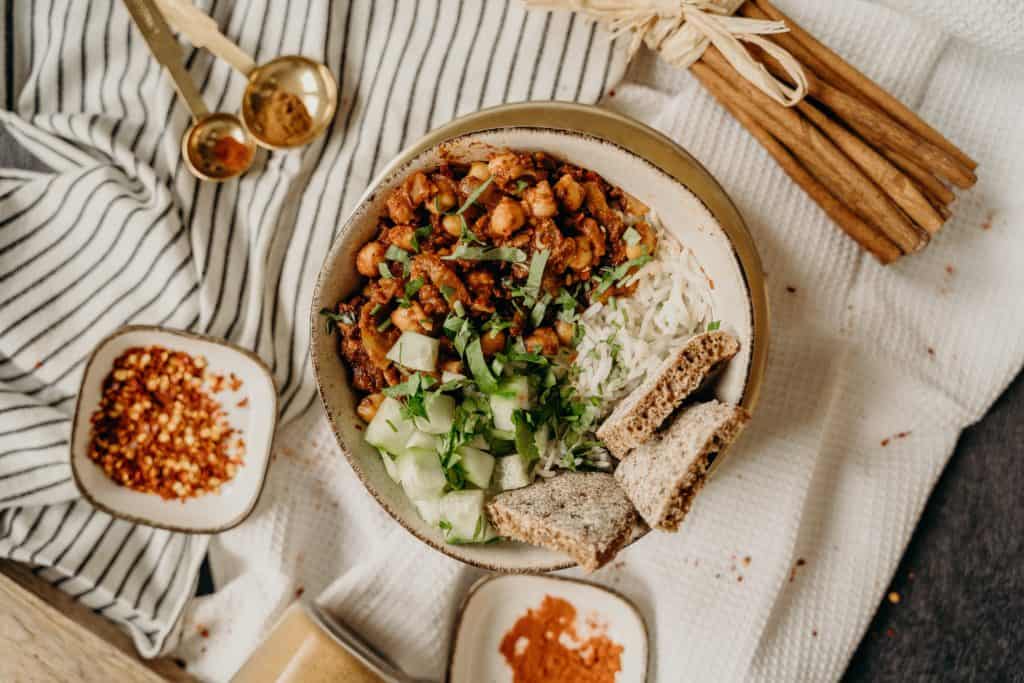
Additional tips on your vegan sports nutrition
In addition to the right diet, there are some other factors that you should consider if you want to eat vegan and do sports:
Planning: It is important to plan your vegan sports nutrition carefully to ensure that you consume enough nutrients and calories. This also includes bringing snacks with you when you’re out and about.
Warming up: Warming up before athletic activity is important in order to avoid injuries and improve performance. Stretching, light cardio exercises, and dynamic stretching are excellent warm-up exercises.
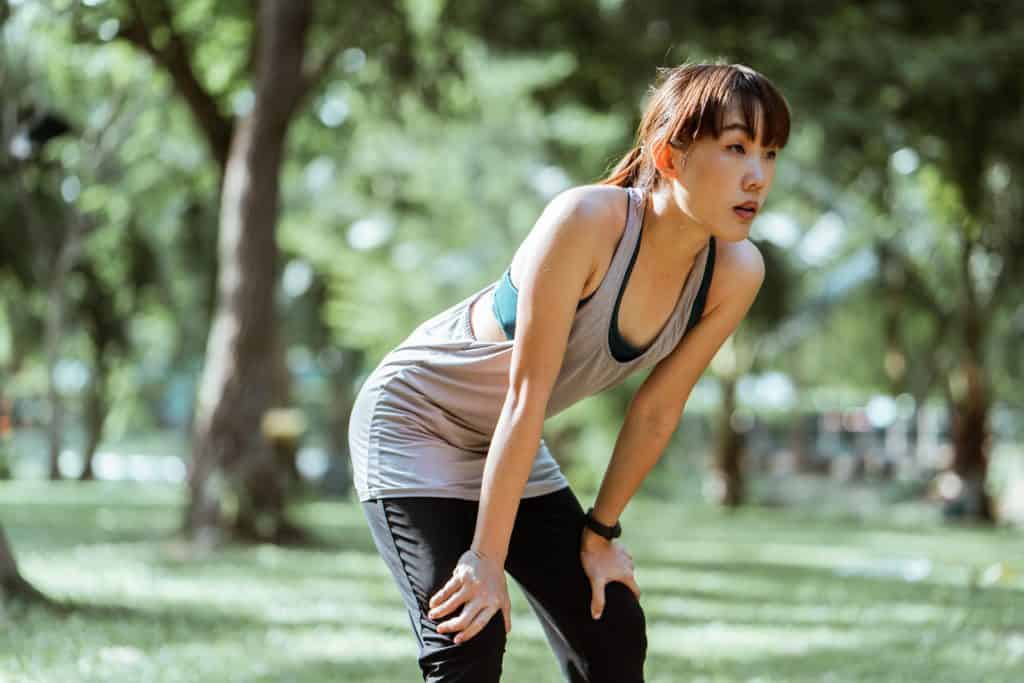
Regeneration: Regeneration after athletic activity is just as important as the workout itself to repair the muscles and allow the body to recover. Protein-rich foods and foods that are high in carbohydrates are especially important for regeneration.
Vegans and sports: Which top athletes out there are vegan?
There are numerous male and female vegan athletes that are successful on a world-class level and who get their energy from a vegan diet. Here is a small selection:
- Venus Williams: Professional tennis player and multiple Grand Slam winner.
- Torre Washington: Professional bodybuilder and fitness model. He has won several bodybuilding titles.
- Meagan Duhamel: Professional figure skater and multi-time world champion in pair skating.
- Nate Diaz: Professional MMA fighter.
- Fiona Oakes: Professional triathlete and marathon skier.
- Cam F. Awesome: Professional boxer and multi-time US heavyweight champion.
- Nimai Delgado: Professional bodybuilder and winner of several titles in the International Federation of Bodybuilding and Fitness.
- Scott Jurek: Professional ultra marathon runner and multiple record holder in the field of ultra-long distance.
- Patrik Baboumian: Professional strongman and repeat world record holder in shot put.
- David Haye: British boxer and former world champion in cruiserweight.
- Robert Cheeke: Professional vegan bodybuilder and founder of the Vegan Bodybuilding & Fitness Company.
- Samantha Shorkey: Professional vegan bodybuilder and founder of The Vegan Project.
These are just a few examples of vegan professional athletes. There are many others who have chosen a vegan diet to improve their performance and promote their health. What’s your interest in vegan sports nutrition as an athlete?
Sources
Bob Murray, Christine Rosenbloom, Fundamentals of glycogen metabolism for coaches and athletes, Nutrition Reviews, Volume 76, Issue 4, April 2018, Pages 243–259, https://doi.org/10.1093/nutrit/nuy001
Clarys, P. et al. (2014) Comparison of nutritional quality of the vegan, vegetarian, semi-vegetarian, Pesco-vegetarian and omnivorous diet, Nutrients. U.S. National Library of Medicine. Available at: https://www.ncbi.nlm.nih.gov/pmc/articles/PMC3967195/
Hajj Boutros, G. et al. (2020) Is a vegan diet detrimental to endurance and muscle strength?, European journal of clinical nutrition. U.S. National Library of Medicine. Available at: https://pubmed.ncbi.nlm.nih.gov/32332862/
Merghani , A. et al. (2017) Prevalence of subclinical coronary artery disease in masters endurance athletes with a low atherosclerotic risk profile, Circulation. U.S. National Library of Medicine. Available at: https://pubmed.ncbi.nlm.nih.gov/28465287/
Greger, M., Stone, G. and Augustin, J. How not to die Entdecken Sie Nahrungsmittel, die ihr Leben Verlängern und Bewiesenermaßen Krankheiten Vorbeugen und heilen.
https://nutritionfacts.org/
Interview with Carla from KADER 1, vegan power athlete



Comments